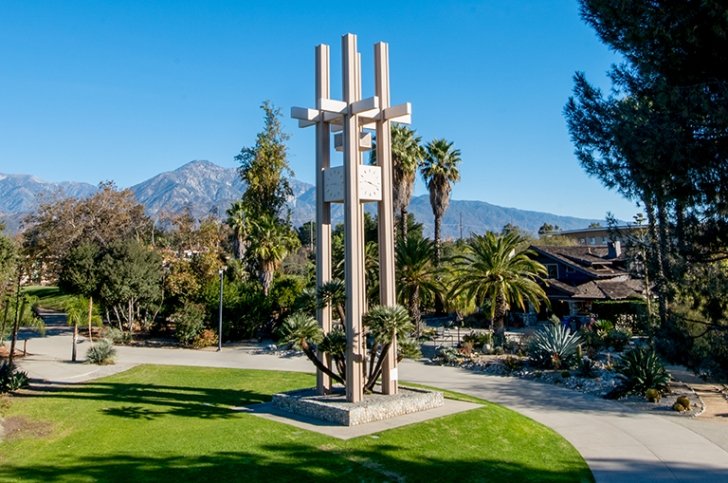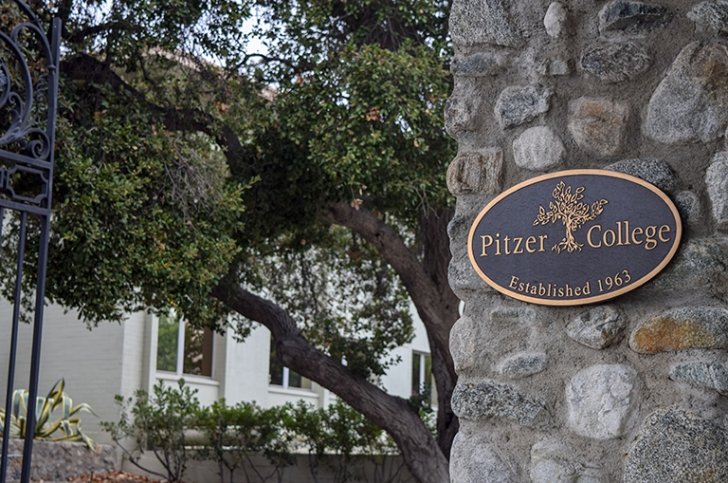New Faculty in the Humanities and STEM Keep Their Eyes on Timely Issues
Pitzer College welcomes six tenure-track faculty for the 2025-26 academic year; the College also celebrates the promotion of several current faculty.
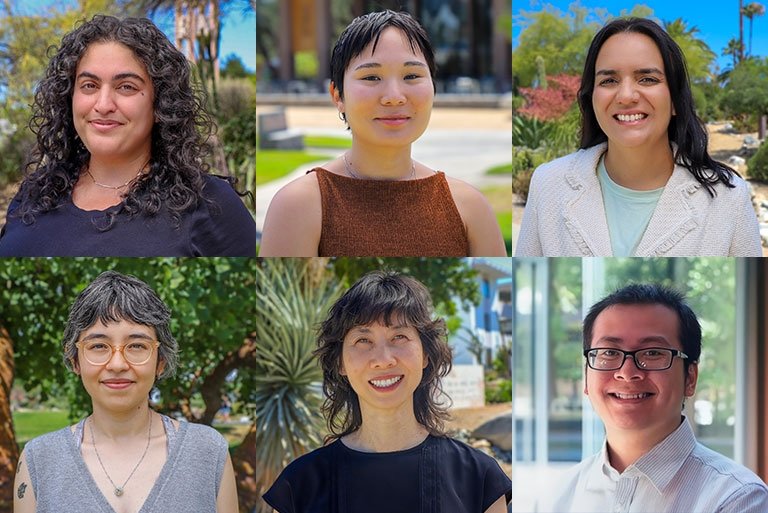
Whether in the sciences or the humanities, Pitzer’s new cohort of tenure-track faculty draws from their respective fields to address pressing contemporary issues. Their fields include gender and feminist studies; environmental analysis; modern languages, literatures, and cultures; Chicana/o Latina/o transnational studies; biology; and physics.
All are joining the Pitzer tradition of interdisciplinary research that engages the world through unique scholarship. They include a sociolinguist who investigates ties between language attitudes and social inequality; a media scholar who intertwines environmental humanities, technology, and visual culture to explore Latin American landscapes; and a physicist studying the robo-biology of artificial lifeforms.
In addition, this fall, 11 current professors also received promotions, and two professors were named associate deans. New faculty positions are listed below, followed by recent faculty promotions.
New Faculty
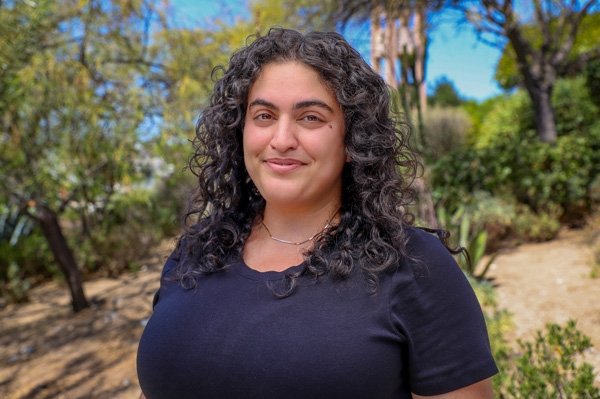
Assistant Professor of Gender and Feminist Studies Tahereh Aghdasifar
- PhD in Cultural Studies with a certificate in Women’s, Gender, and Sexuality Studies from Emory University
- MA in Women’s Studies from Georgia State University
Before arriving at Pitzer, Tahereh Aghdasifar was an assistant professor of women’s studies at California State University, Dominguez Hills. She specializes in queer of color critique, performance studies, and political economy to focus on sociality and opacity.
Aghdasifar’s scholarship has been published in GLQ, Women & Performance, and A Love Letter to “This Bridge Called my Back,” among others. She has received support from the Center for Black, Brown, and Queer Studies and the American Association of University Women.
Aghdasifar was also awarded a Career Enhancement Fellowship by the Mellon Foundation’s Institute for Citizens & Scholars. She used the fellowship to work on her book manuscript On Refraction (and Other Stories of Queer Life). On Refraction develops a queer political theory prioritizing collectivity over individualized models of inclusion built through the shared dispossession and displacement of poor and working-class trans, queer, and/or people of color communities to demonstrate the necessity of materiality in a renewed radical politics. The project bridges the gap between identity politics and class analysis to develop a contemporary theory of liberation which shifts scholarly notions of collectivity as it simultaneously offers organizers a way to reimagine movement building.
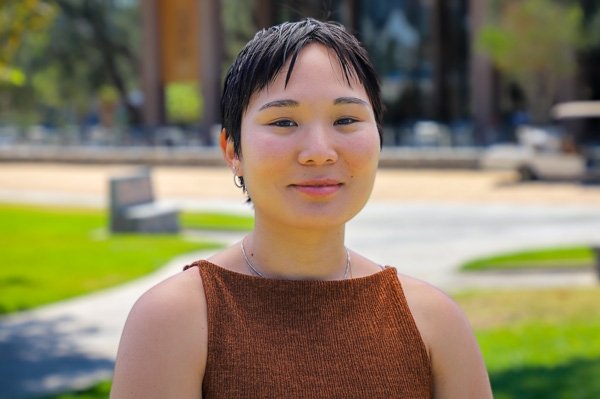
Assistant Professor of Environmental Analysis Maria Paz Almenara
- PhD in Media, Culture, and Communication from New York University
- BA in Modern Culture and Media (Honors) and Political Science from Brown University
Maria Paz Almenara is a media scholar working at the intersection of visual culture, environmental humanities, and political theory. Her current interdisciplinary work engages the politics of digitality and computing technologies in relation to contested imaginaries of land in Latin America.
Her dissertation project rethinks the study of landscape in relation to digital technologies. She examines the role of these technologies in regulating neoliberal economies of extraction and modernization in Peru. In this work, Almenara considers the way quantification of landscape aesthetics in the 1960s as mandated by environmental legislation. The project unravels the encounter between humanistic inquiry and early computing. It further theorizes the potential to reclaim “landscape” for the advancement of anti-imperial projects rooted in the local.
Almenara’s writing has been published in the journal Tapuya: Latin American Science, Technology and Society. Her current research builds on her earlier scholarship, which considered the photographic archives of the Peruvian Truth and Reconciliation Commission. Almenara examined the uses of photography to both legitimize and criminalize violence during internal armed conflict in Peru between 1980 and 2000.
Almenara’s interdisciplinary work engages political theory, media studies, visual culture studies, anti-colonial and feminist science and technology studies, and critical indigenous theory.
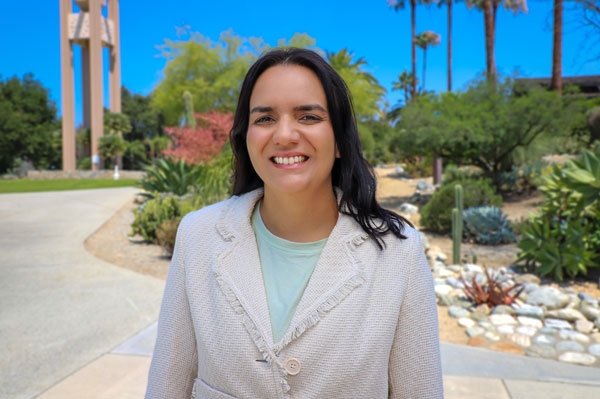
Assistant Professor of Modern Languages, Literatures, and Cultures Mara Barbosa
- PhD and MA in Hispanic Linguistics from Purdue University
- BA in English from the Universidade Federal de Minas Gerais
Mara Barbosa is a former associate professor of Spanish at Texas A&M University–Corpus Christi. Her research centers on language attitudes and ideologies, critical pedagogy, and Critical Discourse Analysis. She examines how different groups of speakers and language learners construct and negotiate attitudes toward language, and how these attitudes connect to broader issues of identity, inequality, and power.
In 2025, she co-edited the book Language Attitudes and the Pursuit of Social Justice: Identity, Prejudice and Education with Talia Bugel. The volume explores the relationship between language attitudes and social inequality, highlighting how linguistic choices are inherently political and encouraging practices that promote equity and justice.
Barbosa is currently pursuing two major projects: one investigating the language attitudes of college students in Texas and California, and another exploring perceptions of Portuguese Kriol in Senegal. Her work also examines how pedagogical practices can serve as liberating forces for minoritized groups.
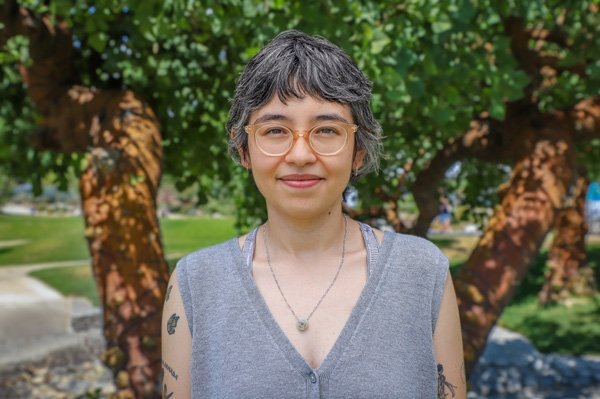
Assistant Professor of Chicana/o Latina/o Transnational Studies Debbie Duarte
• BA in Latin American Latino Studies and PhD in Literature from the University of California, Santa Cruz
Before arriving at Pitzer, Debbie Duarte was a UC President’s Postdoctoral Scholar in the English Department at the University of California, Riverside. Their dissertation, “Borderland Ghosts: Necropolitics at the Colonial Wound,” examines the role of ghosts and hauntings in literary and cultural productions in and about the Mexico-U.S. border. Duarte recently published “Border Screen(ings), Or How to Undocument a Body” in Screen Bodies: The Journal of Embodiment, Media Arts, and Technology. In the article, Duarte explores how illegibility or “undocumenting” becomes a means toward refusing the logic of the U.S.-Mexico border and its role in the production of (the spectacle of) war.
Duarte’s academic interests include border studies, decolonization, feminist critiques, and science and technology studies. Their hobbies include writing poetry, crocheting, hiking, experimenting with food, and playing with their mischievous orange tabby cat, Toni.
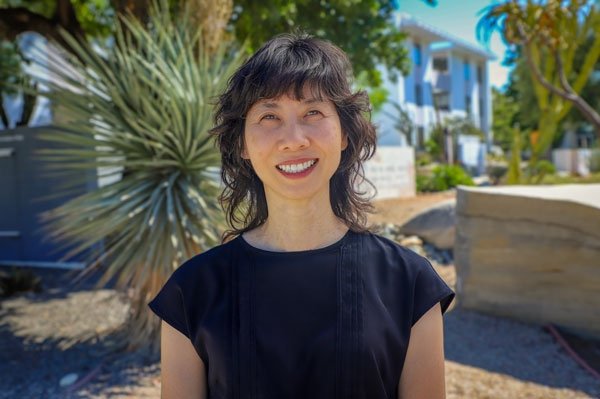
Assistant Professor of Biology Mihoko Kato
- BS in Chemistry from Caltech
- PhD in Chemistry from the University of Chicago
Before her arrival at Pitzer, Mihoko Kato was a visiting assistant professor of biology at Pomona College who taught in the areas of developmental biology, genetics, and molecular biology. Her research investigated the role of the neurotransmitter acetylcholine in regulating cell migration in the nematode C. elegans.
As a postdoctoral fellow in biology at Caltech, she studied the function of genes regulating cell migration during male gonadogenesis in C. elegans. She was supported by a National Institutes of Health postdoctoral fellowship.
Kato has co-authored articles that have appeared in Proceedings of the National Academy of Sciences, eLife, and Development.
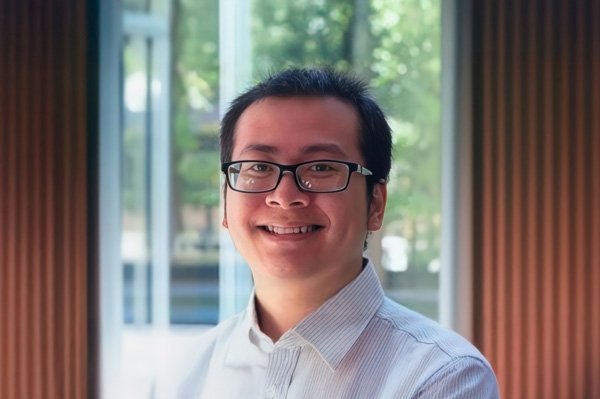
Assistant Professor of Physics Trung (Average) Phan
- BSc in Physics from Massachusetts Institute of Technology
- PhD in Physics from Princeton University
Trung (Average) Phan is a physicist exploring curious and fun ideas in many different frontiers of science. He was a postdoc in the Department of Molecular, Cellular and Developmental Biology at Yale University. This was followed by a postdoc in the Department of Chemical and Biomolecular Engineering at Johns Hopkins University (where Phan also worked at the Johns Hopkins Medical Institute).
Phan has investigated unconventional ideas from the emergence of intelligence at the microbial level to robots as models of evolving biological systems. Phan has researched an ecology-inspired form of active matter consisting of a robot swarm. He has also studied microbiological engineering, cell morphology and motility, hydrodynamics, cancer chemotherapy, and more.
Phan is a referee for Proceedings of the National Academy of Sciences, Small, Biophysical Journal, and other scientific journals. Phan has also taught enlisted veterans STEM and lab skills for the Warrior-Scholar Project.
Phan was born in Vietnam but came to the U.S. during high school through a cultural exchange program. Phan enjoys collaborating with Vietnamese students on a variety of exploratory topics. He also coaches the Vietnamese team for Physics Olympiads at the international level.
Faculty Promotions
Pitzer has awarded promotions to eleven faculty members in biology, psychology, organizational studies, chemistry, neuroscience, and media studies.
Sarah Budischak has been promoted to associate professor of biology with tenure. Budischak’s lab works across scales from physiology to community ecology to understand how environmental context affects how organisms respond to and cope with disease.
Darin Brown is now associate professor of psychology with tenure. Brown investigates the neural correlates of reward processing, emotional states, and how these processes influence learning and decision-making.
Pete Chandrangsu has been promoted to associate professor of biology with tenure. Chandrangsu’s research explores how bacteria respond to stress and how that knowledge may have a positive effect on human health and disease prevention.
Sarah Gilman is now a full professor of biology with tenure. Gilman is a marine biologist who studies the impacts of warming temperatures from climate change on coastal species. Her work demonstrates that these species respond differently to changes in air and water temperatures and that populations of a species closer to the equator are not always the most vulnerable to warming temperatures.
Barbara Junisbai has been promoted to full professor of organizational studies with tenure. Junisbai researches institutions, organizational culture, and organizational learning in a wide range of settings, from authoritarian governments abroad to higher education here in the U.S. Her book, The Pitfalls of Family Rule, was published by Cornell University Press in early 2025. Junisbai and collaborators from Claremont Graduate University (CGU) and Claremont McKenna College were recently awarded a grant from CGU’s BLAIS Foundation to study how workplaces can better support employees of all kinds as they start and build families of all kinds.
Aaron Leconte is now full professor of chemistry with tenure. Leconte leads a team of undergraduates who seek to engineer proteins to create useful tools for medicine and biotechnology. Since joining the faculty in 2012, Leconte has mentored 68 students in his research lab; 37 of these students have been co-authors on publications from his lab to date.
Sarah Marzen has been promoted to associate professor of physics with tenure. Marzen’s lab uses machine learning to understand biological data and interpret biological organisms as machine learners.
Janet Sheung is now an associate professor of physics with tenure. An expert in biophysics, Sheung has taught courses including classical and introductory mechanics, an electronics laboratory, and the principles of physics. Sheung is also passionate about science outreach and has worked with K-12 students and teachers in the local community.
Tessa Solomon-Lane has been promoted to associate professor of neuroscience with tenure. In her lab, Solomon-Lane is interested in understanding the development of social behavior and its regulation by behavioral, endocrine, and neural mechanisms.
Ruti Talmor is now a full professor of media studies with tenure. She is also chair of the Intercollegiate Media Studies Program at the Claremont Colleges (since 2018). Talmor is a cultural anthropologist whose diverse but interrelated body of work sits at the intersection of the anthropology of art, media, and visual culture; the scholarship on migration, mobility, and global capitalism; gender and sexuality studies; and critical curatorial practice. Her recent publications include the monograph Aesthetic Practices in African Tourism (Routledge, 2024), the journal article “Toward an Anthropology of Self Care” (Annual Review of Anthropology, 2024, with Susanna Rosenbaum), and the e-book Kofi Dawson: Ghanaian Modernist (VoxLox Press, 2024).
Nancy S.B. Williams has been promoted to full professor of chemistry with tenure. Her research interests include platinum and iridium and the metal-ligand frameworks that support the making and breaking of strong, inert bonds such as those found in hydrocarbons.
Other Faculty Updates
Pitzer’s new Vice President for Academic Affairs and Dean of Faculty Chawne Kimber has been appointed to the rank of full professor with tenure. Kimber is a higher education leader and mathematician who channels social justice into her work as a celebrated quilter. Learn more about Kimber.
Professor of Modern Languages, Literatures, and Cultures Juanita Aristizábal has been appointed as Pitzer’s associate dean of global/local initiatives and programming and director of the Institute for Global/Local Action and Study (IGLAS).
Professor of Economics Menna Bizuneh has been appointed as Pitzer’s associate dean for curriculum and advising.
News Information
Published
Author
Bridgette Ramirez
